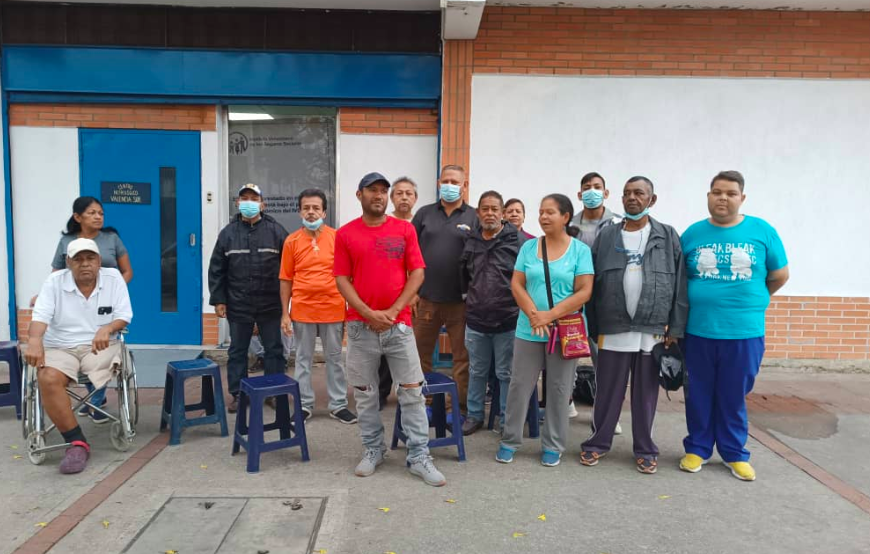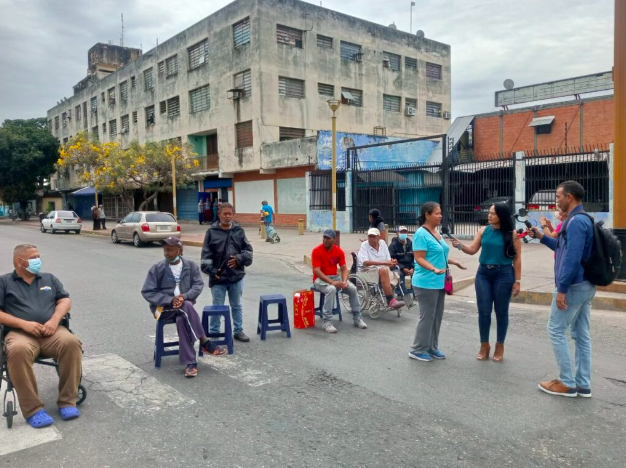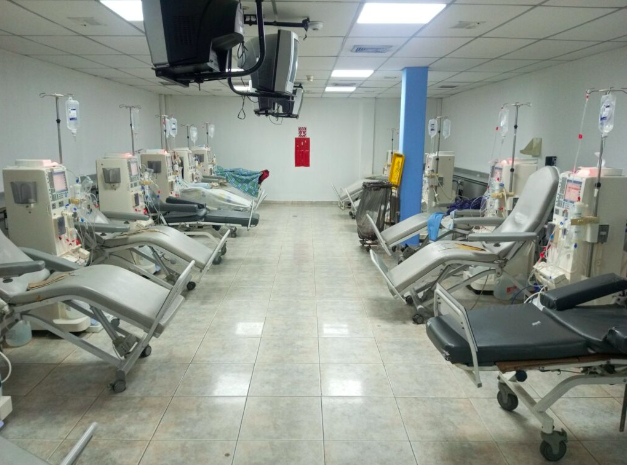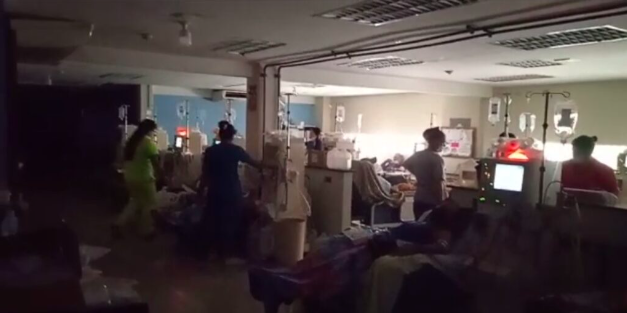
“The situation we live in is critical”, denounce dialysis patients in Valencia and Barquisimeto | via: Efecto Cocuyo
Mariana Souquett Gil @nanasouquett | Venezuela | April 27, 2023 | Photo: Fundarenalca
Every week, people with chronic kidney disease in Valencia and Barquisimeto face a different problem in their dialysis units. If one day the electricity fails, another day the water is missing. When there are no problems with the osmosis plant, it is the air conditioning that does not work. They are also understaffed.
On April 25, patients of the South Valencia dialysis unit, in Valencia, Carabobo State, protested at the entrance of the center. Among their motivations were the multiple failures of the electric service and water supply, which constantly prevent them from dialysis.
“The situation we live in the unit is critical. Twice a week we have the water problem and today we had electrical problems due to the rains. We have an electric plant that turns on, but it is not working due to lack of diesel oil”, Onésimo Muñoz, renal patient, told Efecto Cocuyo on April 27.
In order to have water and dialysis, the 120 patients of the center depend on tanker trucks, since the unit does not receive water through pipes. Although the drivers of the tankers are willing to help, sometimes they do not have the means to travel due to lack of fuel.
Due to these failures, they have had to shorten the time of renal replacement treatment: although they should dialyze between three and a half and four hours, they are given only two and a half or maximum three hours of dialysis.

Photo courtesy of Fundarenalca
According to Muñoz, spokesman for the Carabobo Renal Foundation and a patient for 14 years, another factor that affects the treatment time is the failure of the osmosis plant, which is necessary for the treatment of water in dialysis. In the last few weeks a pipe broke and, although it was fixed, it was damaged again.
“It is also in a situation of neglect: it is not maintained and spare parts are not replaced,” added Muñoz.
The air conditioning of the Valencia Sur dialysis unit does not work, so patients undergo dialysis under a heat that they describe as “horrible”. The sinks in the bathrooms are also inoperative. In addition, they must deal with the accumulation of garbage, which goes up to three months without being collected.
They are also attended by scarce staff: in one of the shifts this week there were only three nurses for 19 patients, when there should be one nurse for every three patients.
“It is horrible the chaos we live in. We ask the authorities, the Venezuelan Institute of Social Security (Ivss), because this unit belongs to the Ivss, we ask for the greatest possible collaboration to pay attention to us, because we are in a precarious situation”.

Photo courtesy of Fundarenalca
In Lara there are also failures
Between April 10 and 14, dialysis patients at the Barquisimeto Dialysis Unit, in Lara State, suffered three unscheduled power outages on different days and during different shifts. These outages occurred while patients were connected to the machines.
“They interrupt the dialysis treatment, affecting the health of the dialysis patient and the useful life of the artificial kidneys, the osmosis plants, the air conditioners,” Carmen Padilla, a patient at the unit, told Efecto Cocuyo. “There are days when there are only fluctuations but they still affect the artificial kidneys because they shut down, and their internal batteries are no longer useful.”
Padilla is one of the 270 patients who are dialyzed in the unit. During the 9 years she has been on hemodialysis she has witnessed how the situation at the center has deteriorated.
“We are talking about poor quality treatments (iron, vitamin B12, erythropoietin, paricalcitol), reduced treatment hours, poor maintenance of the osmosis plants, deterioration of the physical plant of the dialysis unit. Patients and their families must pay for treatments, examinations and consultations,” he added.

and some batteries are no longer functional. | Photo: Courtesy
Individuals and their families must pay for the purchase of catheters and their placement, as well as for fistula surgeries and dialysis prostheses. According to Padilla, there are also not enough vascular surgeons in the public sector to perform these procedures.
In addition, they face the rationing of subsidized gasoline: they are only given 30 liters according to the license plate terminal, a reality that limits not only their transfer to the unit to receive treatment but also their mobility for medical consultations, examinations and when they require hospitalization.
“There are patients who live far from Barquisimeto and 30 liters of gasoline is not enough for them because they will not always be able to equip gasoline in view of the fact that they give limited quotas for each dialysis unit, as long as fuel arrives”, he expressed.